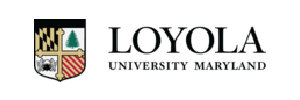
Loyola University Augments Learning Directives with IntelliBoard Lite & Moodle LMS
Loyola University Maryland was founded as an institution for higher learning in 1852. Loyola emphasizes academic excellence, the importance of the liberal arts, and the education of the whole person.
Loyola University's Challenge
Loyola wanted to increase the participation of instructors and learners, supplement strategic decision-making, and better understand the level of engagement both faculty and students have with academic resources.
The institution was also hoping to improve its reporting process for academic departments, schools, and individual faculty members. For example, leadership from the College of Arts and Sciences might want to discover to what extent faculty and students actively participate in course activities, or the business school might like to know to what degree online discussion activities are regularly engaged within a set of accounting courses.
Building a Successful Learning Solution
Using IntelliBoard, Deans and department chairs can recognize a correlation between engagement level and the course delivery method, aiding in the decision process of determining what type of course delivery method delivers the best results for student success.
Delivering Impact
Program administrators at Loyola can recognize what courses produced a higher level of student engagement, whether it be a hybrid, online, synchronous, or asynchronous delivery, and craft course delivery decisions based on quantitative data.
IntelliBoard reporting provides Deans, Associate Deans, and department chairs with diverse qualitative and quantitative data that allows them to make strategic decisions regarding course offerings.
At the individual course level, instructors and/or department chairs are able to interpret the relative level of learner engagement by examining course completion data and learner progress. Administrators are able to supplement those reports with macro-level data, which helps Loyola faculty determine which resources or pedagogical approaches are being leveraged to the greatest degree.
Once academic leadership possesses both macro and micro-level data, they can analyze that data and make decisions based on the qualitative and quantitative engagement level of both individual faculty members and individual students. For example, if there is a recognized correlation between the amount of time [students engage] in a particular course and higher average GPAs, departments may choose to codify the approach that leads to higher engagement.
Building a Long-Term, Strategic Partnership
By looking at IntelliBoard data, Loyola University has been able to more substantively understand student engagement and how students are engaging in their coursework. It helps their academic leadership answer strategic questions about academic offerings.
IntelliBoard helps our leadership answer strategic questions.
By looking at IntelliBoard data, we have been able to understand how students are engaging in their coursework more substantively. We can act faster based on the level of engagement both faculty and students have with academic resources.




